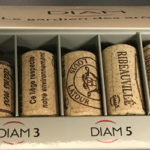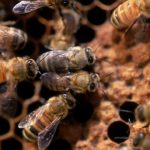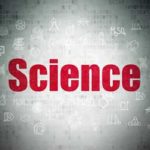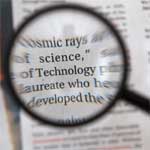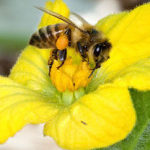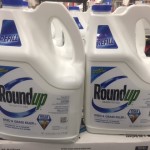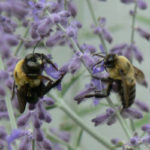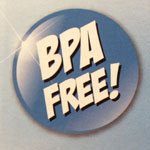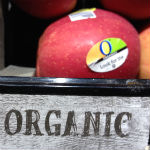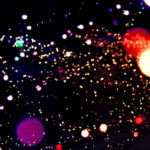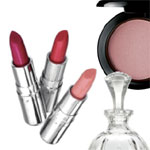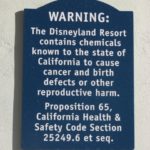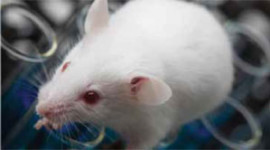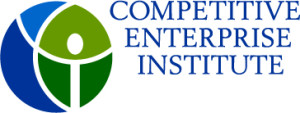"How Technology Makes Life–and Wine–More Satisfying," By Angela Logomasini. It’s easy to romanticize the past and wish one lived during a “golden age.” But was the past really that good? Fictional character Gil Pender gains insights on this question in Woody Allen’s film, “Midnight in Paris.” Pender takes a trip back in time where he has the revelation that not everything was golden: “These people don’t have antibiotics,” he lamented. Indeed, technological developments have vastly improved … [Read more...]
JAMA Study on Pesticides and Fertility
"Are Pesticides The New Birth Control?," By Lila Abassi. When studies are published in major journals one assumes that study adds value to scientific knowledge - sadly this is not always the case. One such study, recently published in JAMA Internal Medicine, revealed an association between high pesticide exposure and decreased pregnancies and live births in women participating in fertility treatments. The data included 325 women, from 2006 onward, undergoing fertility treatments at … [Read more...]
Faulty Claims Behind Flame Retardant Ban
"Activists Use Faulty Claims to Push Flame Retardant Ban," By Angela Logomasini, Ph.D.Look before you leap” has long been considered sage advice. But environmental activist today called on regulators at the Consumer Product Safety Commission (CPSC) to take a leap of faith and ban an entire class of flame retardant chemicals because they believe the chemicals are dangerous. These groups lack data to prove their claims, so they want the commission to rely on junk science to fill “data gaps.” … [Read more...]
Anti-Pesticide Fearmongering Makes Food More Expensive
"Bugged By Junk Science," By Angela Logomasini, Ph.D. “Don’t let the bed bugs bite” was once nothing more than a lighthearted expression, yet nowadays it’s a real concern. Banning the most effective controls will do that. The same can be said for fruit and vegetable pests. It seems such pests are having a field day thanks in part to misguided pesticide regulation driven by junk science and anti-chemical fearmongering. And that is not just a problem for farmers trying to make ends meet. You … [Read more...]
NYT Foolish “Reporting” on Chlorpyrifos
"NYT Pesticide Exposé Only Exposes Foolish Reporting," By Angela Logomasini, Ph.D. Earlier this year, the Environmental Protection Agency rejected a petition from two environmental activist groups to ban the longtime, widely-used pesticide chlorpyrifos. Last week, the New York Times published an ostensible exposé on that decision by reporter Eric Lipton, but despite a lot of dark hints, the story exposes nothing new or noteworthy about the Trump Administration’s decision. Read … [Read more...]
Activists Continue to ‘Bee’ Wrong about Honeybees
"Environmental Activists Continue to 'Bee' Wrong about Honeybee Health Challenges," Angela Logomasini. Bloomberg reports some good news this week: Honeybee hive health has improved and so-called colony collapse disorder (CCD) is less of a problem than it was before. Yet CCD has never really been the major challenge to bees. Environmental activists have used it as an excuse to advance pesticide regulations, spreading misinformation about its causes and impact. May Berenbaum, an entomologist at … [Read more...]
Standing up for Chlorpyrifos Science
"EPA Should Stand Firm on Chlorpyrifos Decision," By Angela Logomasini, Ph.D. EPA Administrator Scott Pruitt took the right stand in favor of sound science last March when he denied an activist petition to ban the pesticide chlorpyrifos. At the time, he explained: "By reversing the previous Administration’s steps to ban one of the most widely used pesticides in the world, we are returning to using sound science in decision-making—rather than predetermined results." But this battle isn’t over; … [Read more...]
Chlorpyrifos Science
"Point: Trump’s War on Junk Science," By Angela Logomasini. According to many news outlets, President Donald Trump has “declared a war on science.” Yet judging from at least one recent decision, the opposite is true. The Trump administration is trying to prevent policies based on junk science. A key example is the Trump administration’s denial of an activist petition to ban agricultural uses of the pesticide chlorpyrifos, which farmers have safely used for decades. This decision makes sense … [Read more...]
Another Misleading Honeybee Study
"Bees and Neonicotinoids - Another Study Promoting a Media Meme," By Chuck Dinerstein. Researchers from the Centre for Ecology & Hydrology (CEH) have published results of a large-scale field experiment, paid for by neonicotinoid (also shortened as "neonics") manufacturers Syngenta and Bayer, to assess neonicotinoid impacts on honeybees and wild bees across Europe. There were 258 data points, nine of which were negative, seven were positive and four were inconclusive. So 238 of 258 showed … [Read more...]
Roundup and Phony Cancer Claims
"No, California, Roundup Won't Give You Cancer," By Julie Kelly and Henry I. Miller. The chemophobes who run California are at it again, siding with environmental activists and pseudoscience rather than evidence and common sense. The state Office of Environmental Health Hazard Assessment announced last month that it was adding the weed-killer glyphosate to its list of chemicals that purportedly cause cancer. Glyphosate — sold as Roundup and under other brand names — is one of the world’s most … [Read more...]
Funding TSCA While Cutting the EPA Budget
"Trump Can Fund Chemical Safety Review while Cutting EPA Budget," By Angela Logomasini. Some observers express doubt that the Trump administration can cut the Environmental Protection Agency (EPA) budget by 31 percent and still fund implementation of the newly reformed Toxic Substances Control Act (TSCA), the law that governs the usage of new and existing chemicals found in consumer products from household cleaners to plastic toys. But a recently leaked EPA memo reveals there are plenty of … [Read more...]
Claims about Wild Bee’s Going Extinct are Off-Base
"Bee Experts Challenge Environmental Claim That Wild Bees Are Near Extinction," By Hank Campbell. Colony Collapse Disorder, the belief that honeybees, an important pollinator, are being killed off in droves, has been good for environmental fundraising but hasn't had a scientific foundation. Nonetheless, it has persisted for 10 years despite data showing that periodic die-offs in bees are as common, and therefore predictable, as solar cycles and California droughts. From the time that records of … [Read more...]
NIH’s Funding Junk Science?
"Who’s Getting Money from NIH?" By Julie Kelly & Jeff Stier. A pair of foreign research organizations have gotten numerous grants for work of unclear value. As Democrats and the scientific establishment howl over President Trump’s proposed budget cuts to the National Institutes of Health (NIH), Congress is investigating whether that agency misspent U.S. tax dollars to fund two European cancer institutions now under scrutiny for conflicts of interest and dubious science. Key lawmakers are … [Read more...]
BPA-Free Stupidity
"BPA-Free, Here We Go Again!" By Steve Hentges. The headline almost jumps out at you – “BPA Substitute Could Cause Adverse Pregnancy Outcomes.” That alarming headline appears in an industry publication, but the same story was widely reported in the popular media, which tends to cover science only when they can create scare stories. The article reports the results of a new study from a group of Chinese researchers on health effects associated with a substance named fluorene-9-bisphenol (BHPF), … [Read more...]
Drain the Junk Science Swamp
"Draining the Junk Science Swamp," By Angela Logomasini. President Trump’s says he came to Washington to “drain the swamp,” and now his administration is looking for wasteful programs to cut. A great start would be pulling the plug on numerous federal “research” programs that, frankly, have been captured by Washington special interests. In fact, much of taxpayer-funded research serves ideological agendas—especially environmental activism—at the expensive of legitimate scientific inquiry. … [Read more...]
Dirty Marketing of Organic Food
"Conventional Produce Is Not Dirty, But The Marketing Tactics Of Big Organic Are," By Steven Savage. For each of the last twenty years, an organization called the Environmental Working Group has issued what it calls a “Dirty Dozen List.” It names crops it claims to have high pesticide residues and recommends that consumers purchase organic versions of these crops. They base their list on a seriously distorted interpretation of a taxpayer-funded testing program called the PDP (Pesticide Data … [Read more...]
Nicholas Kristof on Endocrine Disrupters: Wrong Again!
"The Trouble Lies Not In Our Sperm, Poor Nick," by Geoffrey Kabat. The New York Times’ Nicholas Kristof plays up a non-existent threat to sperm from trace exposures in the environment. Nick Kristof is an accomplished reporter who has drawn attention to neglected problems in the developing world. However, when he ventures into issues relating to environmental exposures and their putative health effects, his critical faculties seem to desert him and he repackages sensational but scientifically … [Read more...]
Shine a Light on Regulatory ‘Dark Matter’
"It’s Time to Shine a Light on Regulatory ‘Dark Matter’" By Angela Logomasini and Henry I. Miller. Regulation is not the only way the federal bureaucracy inhibits innovation. President Donald Trump’s desire to shrink the regulatory state by significantly cutting the number of regulations and their impact is laudable. But it won’t be easy, and it won’t be sufficient, because the federal bureaucracy’s tentacles reach deep into private enterprise through a number of non-regulatory programs and … [Read more...]
Safe Levels of BPA in Seafood
"BPA In Seafood - Is It Safe?" By Steve Hentges. It’s not hard these days to find stories in the popular media about the presence of various chemical contaminants in our environment. Included in this genre are stories about trace levels of chemicals in common consumer products, in the air we breathe, and in the water we drink. Almost inevitably the stories suggest that even minor exposures are harming our health. Making it worse, the consumer media is famous for producing scare stories that are … [Read more...]
Lead in Lipstick Not at “Toxic” Levels
"No, There Aren’t Toxic Amounts of Lead in Lipstick," By The Center for Accountability in Science Team. According to the Environmental Working Group, those scoundrels at the FDA are allowing toxic amounts of lead to poison lipstick lovers nationwide! Not so fast. After all, “according to EWG…” is not the same things as “it’s true that…” Last year, the FDA issued guidelines detailing how much lead is safe in lipsticks and other cosmetics. The agency found that products containing less than 10 … [Read more...]
Scrap Proposition 65
"Scrap Proposition 65, California's Unscientific Chemical Safety Law," By Angela Logomasini. California may soon list glyphosate, the active ingredient used to make Roundup weed killer, as a carcinogen under the state’s so-called “right-to-know” law, originally passed by voters in 1986 as Proposition 65. Its maker, Monsanto, says it will appeal a recent court ruling that would allow the state to proceed, but they may not be able to stop it, even though the state’s claim isn’t supported by much … [Read more...]
Cancer Warnings
"Where is Our Money Going?," By The Center for Accountability in Science Team. We’ve expressed frustration for the methods used by the International Agency for Research on Cancer (IARC) to determine what exactly causes cancer (to paraphrase their findings: everything.) When groups claim that most of the chemicals people encounter on a daily basis are cancer causing, the breathless warnings start to look like they’re coming from Chicken Little. This can be dangerous if people become so used to … [Read more...]
Is “Natural” Flavoring Better?
"Natural and Artificial Flavors: What's the Difference?," By Ana-Marija Dolaskie. The American Council on Science and Health, since 1978 America's premiere pro-science consumer advocacy non-profit, is pleased to announce our new book, "Natural and Artificial Flavors: What's the Difference?", in order to combat growing confusion about health issues related to food. During the last decade, it has become increasingly fashionable to tout "natural" on product labels. It isn't just fringe companies … [Read more...]
Could Salad Be Hazardous to Your Health?
"Salad: The Silent Killer?" By Julie Gunlock. That’s it, folks. There’s nothing left to eat. With news this week that salad may be hazardous to your health, it’s clear we all need to stop eating altogether. Let’s face it, food is a killer. Americans have been hearing just that for decades, and yet life expectancy continues to rise while cancer rates go down, as do deaths due to heart disease. And yet, the food alarmism continues. In the 1990s, Americans were warned to avoid butter, cheese, and … [Read more...]
Bee Listing Could Harm Bees, Butterflies, other Pollinators
"Endangered Species Bee Listing Could Harm Bees, Butterflies, other Pollinators," By Angela Logomasini. If you care about the survival of bees and other pollinators in the United States, you should be concerned about yesterday’s U.S. Fish and Wildlife Service announcement that has placed the rusty patched bumble bee on the U.S. Endangered Species Act (ESA) list. Although it may seem counter-intuitive, the ESA listing could harm this bee and other pollinators by creating perverse incentives that … [Read more...]
